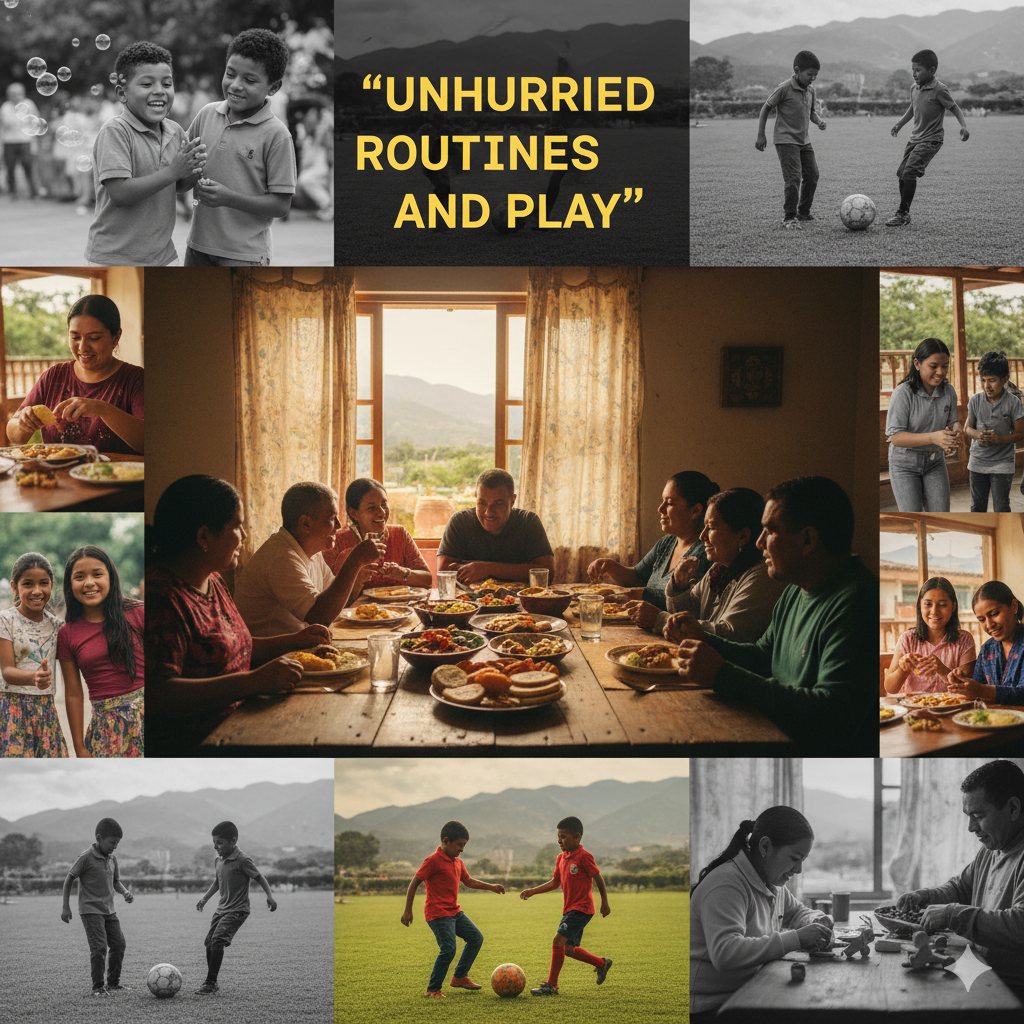hen we think of the world's happiest children, our minds often drift to the most affluent, developed nations. Yet, a large-scale global study on child well-being has revealed a powerful paradox: money does not buy happiness.
This research, surveying over 50,000 children aged 8 to 12 across 15 countries, found that nations facing greater economic and social complexities report some of the highest levels of life satisfaction among their youth.
The findings challenge us all to look beyond material wealth and prioritize the social and emotional foundations of a happy life.
The Global Findings: Where Kids Thrive (And Where They Don't)
The International Survey of Children’s Well-Being (ISCWeB) study asked children to rate their satisfaction with life as a whole on a scale of zero to ten. The results showed a significant detachment between national wealth and childhood joy:
- Top Satisfied: Countries like Turkey (~78%), Romania (~77%), and Colombia (~77%) reported the highest percentages of children with very high well-being.
- Lower Satisfaction: Highly developed nations, including South Korea and England, reported some of the lowest scores for overall subjective well-being.
The key differences often centered on specific domains: children in European countries generally reported higher satisfaction with their friendships, while children in African countries were happier with their school lives and teachers.
The Colombian Blueprint: Why People Over Pace is the Key
The exceptional well-being reported by young Colombians offers the clearest insight into the non-financial drivers of childhood happiness. The secret to Colombia's child happiness is rooted in cultural practices that prioritize connection and emotional security over speed and wealth.
La Familia and Intergenerational Wisdom
In Colombia, La Familia is the central, non-negotiable universe, providing a profound sense of security and belonging.
- This cohesion extends across generations, valuing intergenerational wisdom. Older family members and community figures act as "sabedores" (wise ones), passing down cultural knowledge, values, and resilience strategies through storytelling and shared experiences.
.png)
Unhurried Routines and Play
Daily life incorporates routines that foster connection by deliberately slowing down the pace:
- Unhurried Food Routines: Practices like the long family lunch break, where many people return home to eat together for up to two hours, anchor the day and reinforce family bonds.
- Cooperative Play: Play is actively used to teach empathy, social skills, and teamwork from a young age.

Resilience, Gratitude, and the Spirit of Mañana
The high satisfaction is also a testament to emotional strength:
- Gratitude: Research confirms that Colombian children's perceptions of gratitude are heavily focused on personal relationships—identifying family, friends, and teachers as the most important benefactors.
- Resilience: This focus is paired with the concept of resilience born from struggle, which allows them to choose a "smile as a way of survival" and embody the best spirit of Mañana—not as procrastination, but as a cultural choice to slow down, be flexible, and fully appreciate the life in the moment.
.png)
5 Universal Ways to Nurture a Happy Child
The secret to raising a happy child lies in emotional security and strong relationships—qualities that transcend geography and income. Here are five evidence-based practices families everywhere can adopt, inspired by global well-being research:
- Prioritize Uninterrupted Connection: Dedicate tech-free quality time daily, such as eating dinner together or engaging in a conversation where you listen actively to your child's thoughts without judgment. Strong attachment is the foundation of well-being.
- Teach Emotional Literacy and Validation: Help your child identify their feelings ("Are you angry, or are you frustrated?"). Validate their emotions by saying, "It's okay to feel sad/angry," which builds emotional intelligence and coping skills.
- Cultivate a Gratitude Ritual: Make gratitude a daily family practice. This can be as simple as asking everyone to name one thing they are thankful for during dinner or creating a "Gratitude Jar."
- Emphasize Effort Over Outcome: When praising your child, focus on their effort, persistence, and creativity ("You worked so hard!") rather than just the final achievement. This fosters a growth mindset and resilience.
- Model and Encourage Movement: Prioritize physical health by ensuring they get adequate sleep and encourage outdoor play and exercise. Physical activity is a natural mood booster.
.png)
Conclusion: Re-evaluating the Social Ecosystem
The evidence is clear: a child's well-being is determined more by the quality of their social ecosystem—the depth of their family bonds, the strength of their community, and their capacity for gratitude and resilience—than by the wealth of their nation.
By focusing on deep connection, unhurried routines, and the cultivation of gratitude, we can build the emotional security that truly leads to a happy, flourishing childhood.
Sources:
International Survey of Children’s Well-Being (ISCWeB), which surveyed children aged 8–12 across 15 countries.
The Conversation titled "In which countries are children happier and why?" (referencing the ISCWeB study).
More from
Integrated Parenting
category
Stay Ahead with the future of AI.
Join 1000+ readers.

















